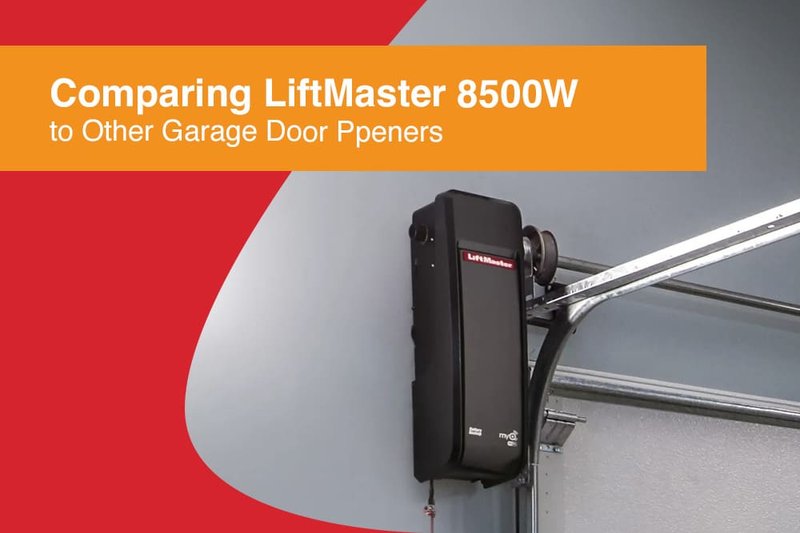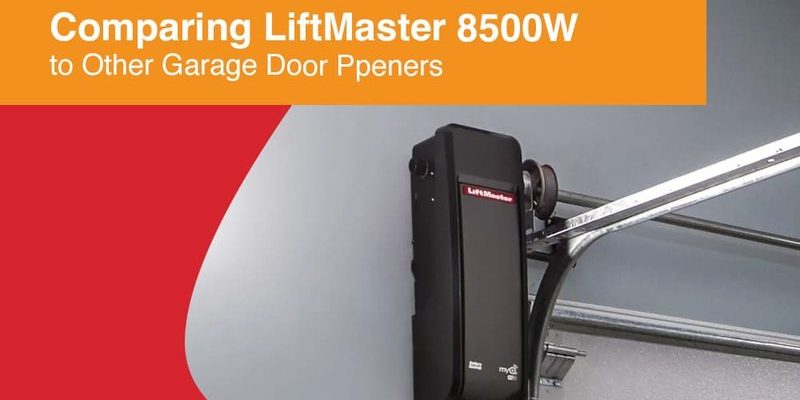
In this guide, we’re diving into the nitty-gritty of garage door opener power cords, focusing on their lengths and whether extension cords might just save the day. We’ll explore different types of cords, their importance, and what you should consider based on your specific needs. Whether you have a LiftMaster opener, a Chamberlain, or another brand, we’ve got plenty of helpful insights to help you make the best decision for your garage.
Why Cord Length Matters
Let’s kick things off with the basics: Why does the length of your garage door opener’s power cord even matter? Well, picture this: You’ve just finished organizing your garage, and you plug in your opener to discover that the cord doesn’t quite reach the outlet. Not only is that inconvenient, but it can also cause power supply issues. If your cord is too short, it could lead to straining connections, which may, in turn, impact the performance of your garage door opener.
Safety is another key consideration. An inadequate power cord may pull out of the outlet, causing intermittent power loss. This can be a safety hazard, potentially leading to the garage door closing when you least expect it, posing risks of injury or property damage. And we wouldn’t want that. Just like a trail that’s too narrow can be troublesome for a hiker, a power cord that falls short can impede your garage access.
Standard Cord Lengths for Garage Door Openers
Most garage door openers come with power cords that range from 6 to 10 feet. These lengths are often standard, but there are variations. Choosing the right length for your situation is essential. Here’s a quick breakdown:
- 6 Feet: Great for setups where the outlet is nearby, often seen in smaller garages.
- 10 Feet: Provides more flexibility when positioning your opener, especially if the outlet is further away.
However, just because the manufacturer provides a default length doesn’t mean it’s always suited for your needs. You might find yourself needing a longer cord if your garage structure is more complex, such as having cabinets or shelves that hinder direct access to an outlet.
Understanding Extension Cords and Their Role
You might be wondering, “Can I just grab any old extension cord and call it a day?” While it’s tempting to think that way, not all extension cords are created equal. Extension cords vary in terms of gauge, which affects how much power they can safely carry. Generally, you’ll want a heavy-duty extension cord—at least 12 or 14 gauge—to ensure it can handle the load of your garage door opener without overheating.
Remember that using an extension cord isn’t just about reach; it’s also about maintaining the safety and efficiency of your system. An inadequate extension cord can lead to voltage drops, which could prevent your garage door from functioning smoothly. Imagine trying to watch a movie on a shaky internet connection; it’s frustrating and ultimately disappointing.
Comparing Cord Quality: What to Look For
When you’re shopping for a power cord for your garage door opener, consider these factors:
- Durability: Look for cords that are built to withstand wear and tear, especially if they’ll be exposed to the elements.
- Load Capacity: Check the cord specifications to ensure they can handle the power demands of your opener.
- Weather-Resistance: If your garage isn’t climate-controlled, consider cords that are made to resist moisture and extreme temperatures.
Here’s the thing: Investing in a high-quality power cord can save you headaches down the road. A reliable cord might last longer, perform better, and provide the peace of mind that you need.
Common Problems with Power Cords
Have you ever run into issues with your garage door opener that you couldn’t quite explain? Sometimes, surprisingly, the culprit isn’t the opener itself but rather the power cord. Here are a few common issues you might encounter:
- Frayed Wiring: Over time, cords can become frayed or damaged, potentially causing shorts. Keep an eye out for exposed wires!
- Loose Connections: If you notice that your opener intermittently stops working, a loose connection at either end of the cord could be the problem.
- Inadequate Power: Using a low-gauge extension cord for a high-demand opener can lead to power issues, causing sluggish operation or complete failure.
Being proactive about these issues can prevent bigger problems and might just extend the lifespan of your garage door system.
When to Use an Extension Cord
So, when exactly should you reach for an extension cord? Here’s a quick rundown to guide you:
- If your outlet is far from the garage door opener’s installation point.
- When the existing power cord isn’t long enough for your setup.
- If you need to move the opener frequently for maintenance or adjustments.
Using an extension cord can be a temporary solution, but always be cautious. If you find yourself needing to use one frequently, it might be worth considering a more permanent solution, like relocating an outlet or installing a longer power cord directly connected to the opener.
Installation Tips for Power Cords
Now that you’re armed with knowledge about power cord lengths and extension needs, it’s crucial to know how to install them safely and effectively. Here are some installation tips:
1. Measure First: Before buying a new power cord, measure the distance from your outlet to the garage door opener. This will help you choose the right length.
2. Secure Connections: Ensure all connections are tightly secured and free from moisture to prevent shorts. Use electrical tape if necessary.
3. Avoid Pinching: Make sure the cord isn’t pinched in any doors or windows, as this can cause damage and impact performance.
4. Regular Checks: Periodically inspect your cord for wear and tear. If anything looks questionable, replace it as a precaution.
Remember, taking the time to install your power cord correctly can save you a lot of trouble later on.
Power Cord Comparison Table
It’s often easier to compare specifications side by side. Here’s a handy table to summarize what we’ve discussed:
| Power Cord Type | Length | Gauge | Durability |
| Standard Power Cord | 6 – 10 feet | 16 gauge | Moderate |
| Heavy-Duty Extension Cord | 10 – 50 feet | 12-14 gauge | High |
This table shows the differences between standard cords and heavy-duty ones, giving you a quick visual reference for what’s available.
Choosing the right power cord for your garage door opener involves careful consideration of length, quality, and safety features. Whether you’re opting for a standard cord or extending your reach with a heavy-duty extension cord, always prioritize quality over convenience. With the right length and an adequately rated cord, your garage door opener will function properly—making your life easier and ensuring the safety of your home.
Remember, just like we wouldn’t compromise on a sturdy, reliable road for our journeys, don’t shortchange your garage door opener’s power supply. Make the informed choice that best meets your needs, and you’ll save yourself a lot of trouble in the long run.
